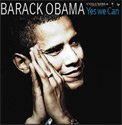|
Aerofallosov posted:Working on it, especially one we can afford. I just figured I'd look at somewhere I could at least have a debit card with in the mean time. I've been looking up pro bono lawyers and low cost lawyers. I might also see what the law schools offer or something. You have a lot of crazy poo poo going on there, and no one here is going to be qualified to advise you based upon a hazy picture painted in forum posts. You need to get a lawyer who you can lay it all out for and get this poo poo figured out.
|
|
|
|

|
| # ? May 12, 2024 00:49 |
|
Bloody Queef posted:I'm of the opinion that there's no such thing as unplanned one time expenses (beyond catastrophic life destroying events) Exactly. "Unplanned one-time expense" is not the same as "unforeseeable expense". In those examples, all three were foreseeable but not planned for. It doesn't make one a bad person, just points out a gap in budgeting.
|
|
|
|
canyoneer posted:Exactly. "Unplanned one-time expense" is not the same as "unforeseeable expense". In those examples, all three were foreseeable but not planned for. It doesn't make one a bad person, just points out a gap in budgeting. Nah, in our case it just means our planning was half-assed. We knew they were coming, but instead of figuring how much per month we needed to save to get there, we just threw a pile of money in to a "general" budget and hoped it worked out. And it did work it, in so far as we haven't had to take out a loan to cover any of those items. I do understand that the purpose of the budget is to determine how much we're allowed to spend on certain things, not to reflect how much we ARE spending on certain things. But I still see that as valuable knowledge. The more I think about it, I think the biggest thing is that right now we're left sitting here trying to figure out HOW it all worked out, and if we're going to have any problems going forward. THAT is why we want to look back at what actually happened. If we look back and see that our shortfall is strictly due to all these one-time expenses, then we're more or less OK (as long as we get better plan for those type of expenses for the future). But if we dig in and find that we're spending too much in other areas, then we need to start cutting back in those areas. We do know that for our long-term goals, we need to quantify them and figure out how much we need to put away each month to reach them. And that is what we were going to look to YNAB to do, since as I understand it that works well for that sort of planning.. But for now, we just want to see what happened this past year so we can make sure that there aren't any recurring problems that we need to fix.
|
|
|
|
I use Mint with joint accounts. When you track the accounts you need login info for both parties and it will duplicate a joint account potentially if you share that bank. Just deactivate one of the duplicates in the settings. Mint will be fine. If you want to track every transaction, Mint will also let you export them to excel. Some categories may be off, so investigate your transactions frequently (I do this about weekly, or when a paycheck comes it to budget ) and you can correct any categories quickly. YNAB is a bit cultish here. It's a great tool but you could just make your own spreadsheet for your own needs, alternatively. Excel can do subtraction and division just fine. Extra easy if you can make a pivot table if you want your transactions to feed directly into it.
|
|
|
|
Yes, but you also have to have an idea of what you're doing before you can make an Excel spreadsheet that's not useless and quickly abandoned. Remember your audience. These tools aren't targeted at people who know what they're doing (though they can certainly still use them) but towards people who need to be shown the way and for THAT, they're great.
|
|
|
|
Thanatosian posted:You have a lot of crazy poo poo going on there, and no one here is going to be qualified to advise you based upon a hazy picture painted in forum posts. You need to get a lawyer who you can lay it all out for and get this poo poo figured out. True, I've been trying not to get too specific. I've gotten in touch with the pro bono directories and low cost/income referral service offered in my state. There's a lot of stuff going on and it's made it tough to sort. So, lawyering up, getting a mend my credit bank account and job hunting. I'm sure there'll be at least one bank that will let me open a debiting account while I lawyer up. But I do appreciate the reality check. Sometimes I feel sort of dazed and worried about it.
|
|
|
|
Why is the roth 401k limit so much higher than the roth ira limit?
|
|
|
|
madkapitolist posted:Why is the roth 401k limit so much higher than the roth ira limit? Just because they are completely different investments with different rules.
|
|
|
|
madkapitolist posted:Why is the roth 401k limit so much higher than the roth ira limit? Because one follows the 401k rules and the other follows IRA rules. It's the same difference for traditional 401k and IRA limits.
|
|
|
|
What are the main differences between a roth 401k vs a roth ira?
|
|
|
|
One is a 401k and one is an IRA. The 401k comes through your employer only, and sometime the employer adds free money in there (matching). The IRA you arrange yourself, and it has a smaller contribution limit. Either can be traditional (pre-tax contributions) or Roth (post-tax contributions).
|
|
|
|
I haven't used a savings account in a few years, 3-4 now actually. I was using ING since college, but they switched over to I forget what and I would be fine with just bailing on that bank, closing my account, and moving on. I don't quite trust a bank that wasn't there when I signed up. Anyway, I'm looking to start a new savings account. Strong online features would be preferable, so I don't have to go anywhere or mail anything out. The interest rate doesn't matter either, I know they are all low. Preferably, I would like to sign up with a reputable bank, not like a Wells Fargo or something. So I guess what I'm asking is, what's the favored online bank these days?
|
|
|
|
Syjefroi posted:I haven't used a savings account in a few years, 3-4 now actually. I was using ING since college, but they switched over to I forget what and I would be fine with just bailing on that bank, closing my account, and moving on. I don't quite trust a bank that wasn't there when I signed up. Anyway, I'm looking to start a new savings account. Strong online features would be preferable, so I don't have to go anywhere or mail anything out. The interest rate doesn't matter either, I know they are all low. Preferably, I would like to sign up with a reputable bank, not like a Wells Fargo or something. So I guess what I'm asking is, what's the favored online bank these days? CapitalOne 360 is what ING turned into and other than the name change there has been no noticeable difference. It is still a great choice in my opinion. The fact that you can open multiple savings accounts for different things and have money automatically routed to them when you get paid makes budgeting a lot easier. Instead of looking at my monthly budget and making sure I don't spend money that is meant for something else the money just goes into a separate account for my mortage, or utilities, or car payment, etc. and what is actually left in my checking account is spending money. You can get them to mail checks for you for free, and you can get a checkbook for the random checks you need to hand out personally, and they have check scanning on their iOS and Android apps.
|
|
|
|
Syjefroi posted:I haven't used a savings account in a few years, 3-4 now actually. I was using ING since college, but they switched over to I forget what and I would be fine with just bailing on that bank, closing my account, and moving on. I don't quite trust a bank that wasn't there when I signed up. Anyway, I'm looking to start a new savings account. Strong online features would be preferable, so I don't have to go anywhere or mail anything out. The interest rate doesn't matter either, I know they are all low. Preferably, I would like to sign up with a reputable bank, not like a Wells Fargo or something. So I guess what I'm asking is, what's the favored online bank these days? Since your savings accounts are insured by the FDIC, I wouldn't worry too much about what specific bank holds your account from a reputation standpoint. I just signed up for an Ally account, which gets something like 0.99% but has some restrictions about money movement. For an emergency fund it works well for me. Good online features.
|
|
|
|
When applying for a credit card, what do they mean by total annual income? Does that mean last year's total? What my current salary is? Edit: Also, if I am trying to apply for a cash rewards card that gives a higher percentage for the first certain amount of spending per month, is there any problem with my wife and I getting two separate cards? Any reason to get one instead?
|
|
|
|
Doghouse posted:When applying for a credit card, what do they mean by total annual income? Does that mean last year's total? What my current salary is? It doesn't matter that much, but you can use whatever figure you're most comfortable with: your total salary, your salary plus any potential bonuses plus all your interest/dividends/investment income, your total salary plus all that plus the value of your 401k match etc. Basically, you can put a number higher than "my salary" but you should be able to at least offer how you arrived at that number. And no, no problem with your wife and you getting each one card. The only reason not to would be if you doubt in any way that you can keep up with the small amount of additional tracking/paperwork you'll have to do.
|
|
|
|
kaishek posted:It doesn't matter that much, but you can use whatever figure you're most comfortable with: your total salary, your salary plus any potential bonuses plus all your interest/dividends/investment income, your total salary plus all that plus the value of your 401k match etc. Basically, you can put a number higher than "my salary" but you should be able to at least offer how you arrived at that number. Cool, thanks - I assume you can do everything online with most cards nowadays, right? Right now we just have this generic 1% back card that we got from our bank, so it's easy to take care of with the same online banking system. I hope it won't be much of a hassle to start using a different card.
|
|
|
|
Tons of great information in this thread. Last year I left a fairly high paying job to work at a non-profit with a much smaller paycheck. I've got about $6,000 in my checking account and was looking for advice on where to move it to start saving / investing. Without really trying to be frugal I usually end up with around 15% of my gross pay in savings each month and I could definitely get it higher if I were to commit to being thriftier. My non-profit employer does not offer matching 401(k) funds, so I would be all on my own in this endeavor. I'm in my late 20's with no major expenses (kids, car, house, etc) on the horizon. Unfortunately, I live in one of the highest cost of living areas in the U.S. so that $6k is about 5 months of living expenses for emergencies, but my girlfriend has lived with me for the past 4 years and she makes almost double the money I do at my new non-profit job. So I don't think I would be hurt too much by putting a larger amount into savings. Should I start off with a Roth IRA if I have no matching funds from my employer? With no big purchases in the future I'd like to just do whatever I can to maximize my total gains even if it means I can't touch them for a while. I'd like to keep it as simple / passive / streamlined as possible. Leon Trotsky 2012 fucked around with this message at 21:29 on Jan 9, 2015 |
|
|
|
Leon Trotsky 2012 posted:Tons of great information in this thread. Last year I left a fairly high paying job to work at a non-profit with a much smaller paycheck. I've got about $6,000 in my checking account and was looking for advice on where to move it to start saving / investing. Without really trying to be frugal I usually end up with around 15% of my gross pay in savings each month and I could definitely get it higher if I were to commit to being thriftier. You probably want to keep that $6k in a savings account, though, as an emergency fund.
|
|
|
|
If it were me I'd open up a Roth IRA through Vanguard.
|
|
|
|
khysanth posted:If it were me I'd open up a Roth IRA through Vanguard. Me too. Even if you want to keep it as an emergency fund, do a money market within a Roth or even a "income" mutual fund. If you never have an emergency, great, you've saved for retirement. If you do, just pull it out and to have no penalties (on contributions).
|
|
|
|
Dead Pressed posted:Me too. Even if you want to keep it as an emergency fund, do a money market within a Roth or even a "income" mutual fund. If you never have an emergency, great, you've saved for retirement. If you do, just pull it out and to have no penalties (on contributions). If you're in your mid-20s, a Vanguard 20XX account is probably going to be invested someplace high-risk. You don't want to be using a high-risk account as your emergency fund. It may technically be penalty-free, but liquidating it will incur fees, and liquidating it when it's low can incur a pretty huge opportunity cost (and you're more likely to be pulling from it when it's low).
|
|
|
|
Don't know what you're talking about as vanguard doesn't charge transactions fees on their units outside of the ER,and I recommended a money market fund or income fund which would be mostly fixed income with little variability. Obviously glazed it over in what you quoted.
|
|
|
|
Dead Pressed posted:Don't know what you're talking about as vanguard doesn't charge transactions fees on their units outside of the ER,and I recommended a money market fund or income fund which would be mostly fixed income with little variability. Obviously glazed it over in what you quoted. I suppose that's a fair point. The only opportunity cost incurred would be on the hard limits on Roth deposits, but if you're at that point, you can just stick the remainder in an ordinary savings account as an emergency fund. Are withdrawals from Roth IRAs any slower than withdrawals from a regular savings or money market account?
|
|
|
|
Huh... so if we aren't going to be able to max out our Roth IRAs in 2015 without depleting emergency savings, does it make sense to move some of that savings to a money market account just to get the money in the Roth, and sell it for a higher-risk fund at a later date?
|
|
|
|
I did that the year I bought a house, for exactly that reason, and got back on track the next year. I would only recommend it as a temporary measure, though. Mixing emergency funds and IRAs just doesn't make sense in general.
|
|
|
|
slap me silly posted:I did that the year I bought a house, for exactly that reason, and got back on track the next year. I would only recommend it as a temporary measure, though. Mixing emergency funds and IRAs just doesn't make sense in general.
|
|
|
|
SiGmA_X posted:I think the real reason to not do this is to mentally separate retirement savings vs emergency fund money, right? Also, if something happens while your fund is depleted, you could be up poo poo creek. If you're in a fairly stable position and will be able to refill your emergency fund in a few months, yeah, you might want to do it. It really depends upon your risk tolerance versus your opportunity cost.
|
|
|
|
SiGmA_X posted:I think the real reason to not do this is to mentally separate retirement savings vs emergency fund money, right? To actually separate them. You can't put IRA money back in if you take it out, and WHOMP there went several decades of tax free gains. People should be able to handle unexpected or badly timed expenses without raiding the IRA, and that's the role of the cash emergency fund.
|
|
|
|
slap me silly posted:To actually separate them. You can't put IRA money back in if you take it out, and WHOMP there went several decades of tax free gains. People should be able to handle unexpected or badly timed expenses without raiding the IRA, and that's the role of the cash emergency fund. But for some people it will be one or the other, so in those cases, you believe they should contribute less to their IRA?
|
|
|
|
Exactly what to do depends on the details, right? My point is that routinely using an IRA for an emergency fund is missing the point of both of them. There are situations where it makes sense to overlap them temporarily, but it's not a good general operating principle.
|
|
|
|
slap me silly posted:My point is that routinely using an IRA for an emergency fund is missing the point of both of them. There are situations where it makes sense to overlap them temporarily, but it's not a good general operating principle. I'm playing devil's advocate because this is the first I've thought about this, but you haven't explained why, you're just asserting it strongly. What is the downside to withdrawing principal from a Roth IRA in an emergency, if the alternative is that the equivalent amount of money was never in the IRA to begin with? You're not taking away from retirement funds; if anything, you are increasing the chance that it becomes retirement funds. The only downside I'm thinking of is the somewhat longer time it takes to get the money.
|
|
|
|
disheveled posted:What is the downside to withdrawing principal from a Roth IRA in an emergency, if the alternative is that the equivalent amount of money was never in the IRA to begin with? Not that I've counted, but my impression is that most people who have asked this question in here are either (1) Just starting to pay attention to their finances and need to grasp "emergency fund" before they think about IRAs; (2) Trying to justify not having an emergency fund in addition to their IRA, so that they can buy <thing>; (3) In a temporary situation where it makes sense to partly reduce the emergency fund to max out the IRA, and then repair the damage in the next year. I'm not quite sure what scenario you're looking at, I guess. The only reason you'd withdraw from a Roth IRA in an emergency is if your emergency fund was inadequate for events. So you want to set yourself up so you're only exposed to that risk over time to a degree you're comfortable with. That is to say, keep your emergency fund large enough, and if you dip into it to max out your IRA, make sure you restock it as soon as you can. It really boils down to "How big should my emergency fund be?" and that's a giant judgment call anyway.
|
|
|
|
disheveled posted:I'm playing devil's advocate because this is the first I've thought about this, but you haven't explained why, you're just asserting it strongly. What is the downside to withdrawing principal from a Roth IRA in an emergency, if the alternative is that the equivalent amount of money was never in the IRA to begin with? You're not taking away from retirement funds; if anything, you are increasing the chance that it becomes retirement funds. The only downside I'm thinking of is the somewhat longer time it takes to get the money. The typical user of this forum is going to be in their early 20s to mid-30s. Generally (if you're doing it right), you're going to have your Roth IRA funds in something very aggressive, probably mostly in small-cap or international stocks (like through a Vanguard 2055 or something like that). Those funds are rollercoasters; they tend to jump around a lot. You are more likely to be in financial straits when the stock market is on the downswing than on the upswing, so you'll be selling low. Generally, you want to leave stuff like that alone for very long (20+ years) periods of time. Additionally, a lot of IRAs may not be immediately accessible, so if it's an "I need money right this second" emergency and not an "I need money next week" emergency, you could be SOL.
|
|
|
|
slap me silly posted:Exactly what to do depends on the details, right? My point is that routinely using an IRA for an emergency fund is missing the point of both of them. There are situations where it makes sense to overlap them temporarily, but it's not a good general operating principle. Disclaimer: I typed this while falling asleep on my phone. I'll double check for clarity tomorrow. The devil is certainly in the details, but I disagree completely with how you're perspective is set to look at this. A three to six month emergency fund sitting in cash is really an antiquated way to approach your need of a emergency fund, and is a knee jerk response that prevents people from optimizing the management of their finances. Emergencies that occur over a prolonged period of time need to be protected against by insurance (eg disability, health, home insurance). Most acute emergencies, such a car going out or pipe flood in a house are primarily issues of cash flow, and not of total liquid assets available for immediate use. These can be taken care of with a small float in the checking account. Mine is $5k, and has proven to be more than sufficient many times (actually replacing carpet in my entire house due to pipe burst this week). In the case it isn't, any acute overage may be taken care of through credit card for the purpose of immediate cash flow crunch, delaying cash needs for one month. ANY account can be liquidized in a month's time to prevent a balance being carried over and interest being accrued. In these circumstances, the allocation of the funds used for liquidation is key. Yes, if you're leveraged 100% stocks you are at risk of losing the emergency fund. If you're concerned about that, as I've mentioned previously, invest in a money market fund through the account. There is no marked difference between mma's in a savings account or Roth IRA, except for the fact that you're either attempting to optimize your utilization of tax sheltered accounts, or not. If you pull your contributions into the mma out, oh well, you are no worse that you would have been otherwise besides the fact that you have to wait 4 days for vanguard to liquidize the funds (see cash flow). Don't use the funds? Great. You just saved for retirement and utilized a year's worth of tax sheltering potential you would not have access to otherwise, as you'll never get a year's worth of contributions back retroactively. There is literally no reason not to do this. I'll use this analogy. You and I both have a fire to put out (emergency). We both need water to use as a smothering substance (money). Who cares if I use a red bucket with a proactive cover on it (Roth Ira) and you use a orange bucket without (savings account) if we've both filled it to the five gallon line ($5.5k annual limit)? Obviously, if I have 7 gallons, I want to spread it among various buckets for storage instead of just pouring it out (spending money). Also, better not put gasoline in my bucket (invested in stock) if I want to use my bucket for the fire.
|
|
|
|
*uses emergency fund money to make 2015 IRA contribution of 5500 on Jan 2 *pipe explodes, has to make Roth withdrawal to cover emergency repairs OR loses job, has to make withdrawal to cover basic living expenses for 3-4 months *doesnt make enough money to pay withdrawal back within 60 days grace period, losing cumulative return of 5500 over literal decades
|
|
|
|
If you are going to do it, you should probably be keeping the emergency money in savings until a week or two before tax day, then dump in as much as you can for last year's contribution right before the time limit to avoid this exact issue...
|
|
|
|
Since lines of credit exist, I don't understand why emergency funds exist for people who have these magical lines of credit. People say "Oh, well, the bank can revoke your line of credit whenever it wants". When has this ever happened?! I'd rather keep that $10k invested and have it turn into $80k after 30 years. Unless someone gives me a good reason not to - one that I've never seen before.
|
|
|
|
Rick Rickshaw posted:Since lines of credit exist, I don't understand why emergency funds exist for people who have these magical lines of credit. When the financial crisis happened? You also need to be able to make the payments if you use it. It's not really that much different than just investing you're emergency fund. The line of credit just adds another potential source that has some risk of not being there. It's up to you to decide if this risk is worth the return. Just to put this in perspective, it will increase you're total investments by about 3.5% if you invest the maximum amount you currently can in a 401k and an IRA. (I'm assuming a return of 7% since that gives 80k with 10k invested over 30 years)
|
|
|
|

|
| # ? May 12, 2024 00:49 |
Rick Rickshaw posted:Since lines of credit exist, I don't understand why emergency funds exist for people who have these magical lines of credit.
|
|
|
|























